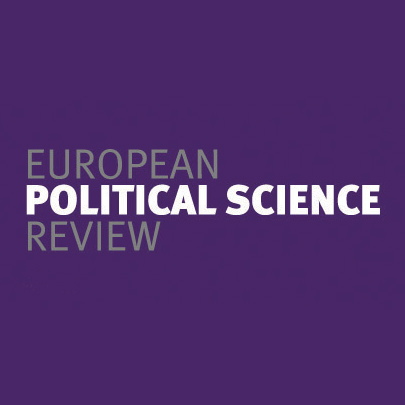Install this application on your home screen for quick and easy access when you’re on the go.
Just tap then “Add to Home Screen”
As our generalist research journal, European Political Science Review prepares for a transformative shift to Open Access, Co-Editor Marina Costa Lobo and publisher David Mainwaring unravel the evolving political science publishing landscape and offer insights into EPSR's bold leap towards a barrier-free future.
The transition of academic research journals to Open Access has a long history stretching back well over twenty years. One of the greatest challenges during this time has been how to make fully Open Access journals a sustainable reality in academic fields outside the core of well-funded STEM disciplines.
It has been increasingly clear that the paywalls that still exist in major outlets inhibit the exchange of research knowledge, and are in stark contrast with the recent technological advances in the research context which allow for rapid and constant sharing of information.
Although most social science and humanities journals have been ‘hybrid’ for a decade or more, offering the option of Open Access publication alongside the traditional paywalled route, many authors have not been in a position to pay the required fees.
This has changed in recent years with the advent of ‘transformative’ sales agreements, an approach also known as ‘read and publish’. These agreements bundle together Open Access publishing with the ability to read the paywalled content, creating a single institutional payment. Yet, this furthered inequalities between scholars, as journal issues included some funded OA articles and others continued behind a paywall.
 For European Political Science Review (EPSR), that was precisely the situation until recently. We thus very much look forward to flipping the Journal to Gold Open Access in the next few months, thanks to the backing of Cambridge University Press and their transformative Open Access journal flip model.
For European Political Science Review (EPSR), that was precisely the situation until recently. We thus very much look forward to flipping the Journal to Gold Open Access in the next few months, thanks to the backing of Cambridge University Press and their transformative Open Access journal flip model.
As a relatively new and generalist political science journal that publishes articles on different regions of the globe, our authors stand to gain from this important move, as more scholars will be able to access the research we publish.
Under this new approach, every single piece of new content in a converted journal will be published on a fully open-access basis, regardless of the author’s affiliation or funding position.
We are able to do this because most authors in such journals will be covered by a Cambridge University Press transformative sales agreement. All those who are not will have their fees waived without question. This last part is the key to making sustainable Open Access publishing available to all and means that this is a truly pivotal moment in HSS research communication.
Open Access will further enable the transfer of knowledge to civil society organisations, from think tanks to the media. Indeed, these institutions have had very little access to articles behind paywalls, thus curtailing strongly the potential of research’s social impact and its outreach. These are some of the reasons why the move towards Open Access is such a groundbreaking step. It will foster the creation of a level playing field for all researchers, allowing the transfer of knowledge among scholars, from different geographies and for civil society.
We are delighted that EPSR will be in the vanguard of journals making the transition ahead of 2024, and about the possibilities that this creates for the journal to shape and accelerate scholarly debate.
EPSR will be one of around 35 Cambridge University Press journals converting to full Open Access in the coming year, with a further group making the move in 2025. This includes titles of all types, sizes, and subject areas, from philosophy to physics via political science, and from all parts of the world. It’s exciting to be on the cusp, at last, of a fully open future.
Principal Researcher at the Institute of Social Sciences of the University of Lisbon
Executive Publisher for Social Science Journals at Cambridge University Press